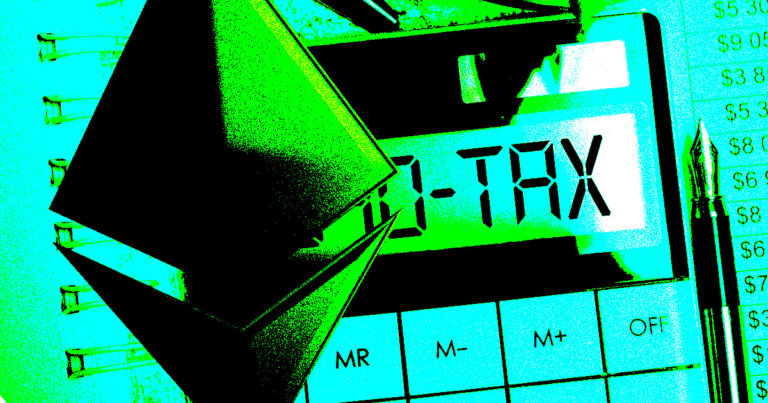 Tax implications of the Ethereum Merge and what to do to prepare
Tax implications of the Ethereum Merge and what to do to prepare Tax implications of the Ethereum Merge and what to do to prepare
The merge is an unprecedented event that could have major tax implications if an ETHPoW token arises with real value. CryptoSlate spoke with Koinly to find out what we need to know

Cover art/illustration via CryptoSlate. Image includes combined content which may include AI-generated content.
CryptoSlate spoke with Tony Dhanjal, Head of Tax at Koinly, a crypto-focused tax software company.
Koinly allows users to create tax reports by linking wallets and exchange accounts and then using on-chain data to calculate any tax liabilities.
Creating tax reports for crypto can be almost impossible for the average user and can lead to high accountant costs due to the potentially vast number of transactions that need to be processed.
Given Koinly’s deep understanding of both tax and crypto, CryptoSlate spoke with Dhanjali about the upcoming Ethereum merge to find out if the event will trigger any taxable events.
Interview with Tony Dhanjal, Koinly Head of Tax
What are the main tax implications of the merge?
It all depends on whether there is a (hard) fork of the incoming Proof of Stake (PoS) chain (currently on the beacon chain) and the original Proof of Work (PoW) chain.
If there is no hard fork, it is unlikely that the change in PoW to PoS consensus mechanism resulting from the merge will create a taxable disposal event by virtue of there being no new crypto asset – ETH will remain as ETH.
Existing ETH holders will simply get an ETH PoS token in exchange for the original token on a 1:1 basis, and the original cost basis is attributed to the new PoS token.
If a hard fork occurs, then there is a potential tax implication, depending on where you live as a tax resident.
Are there any specifics for territories such as the UK or US that people should be aware of?
In the US the IRS has not issued any guidance on a merge event per se. However, the IRS offers clear guidance when it comes to hard forks and that is – if an investor receives an airdrop of new coins following a hard fork, then they have taxable income. The taxable income is based upon the fair market value at the point of receipt of a PoW token airdrop in the hands of the investor – if it is zero at the point of receipt, then ultimately this is the fair market value and mathematically, the tax on zero is zero.
In the UK – according to current guidance, it can be inferred that income tax is not applicable upon receipt of PoW tokens. Instead, the investor will be subject to capital gains tax on any gains or losses crystalized, based on an apportioned cost basis for the ETH (PoW)
How do you feel a PoW hardfork token like ETHw would be seen by HMRC in terms of value? Would the token be worth $0 - An airdrop as its never been traded or could people be hit with the full ETH equivalent value?
The value of a PoW token, based on its original acquisition cost, would have to be apportioned on a just & reasonable basis. This could be 50-50 as a starting point, or a time based apportionment, but HMRC do not prescribe ‘just & reasonable’ in this context – it is down to the holder to apportion and keep clear records of their methodology, in case HMRC disagree.
With regards to the market value, and assuming PoW tokens are supported by oracles and exchanges, and have reliable price feeds – in theory it starts at $0. At the start point of the fork, the aggregated gain/(loss) of the combined PoW and PoS tokens should be in equilibrium with the pre-merge ETH gain/(loss).
Do you think current tax laws are good enough for the current state of crypto
In short, no.
One of the objectives tax rules should achieve in principle is tax neutrality. That is where the tax framework of one asset class, such as Crypto is not unduly incentivising or dis-incentivising an investor in comparison to similar asset classes, like shares and securities.
While the tax treatment of vanilla crypto trading – that is buying and selling – is fairly aligned with shares and securities, DeFi activity is not on par with traditional finance. Many tax agencies like the IRS in the US have remained silent on the tax treatment of defi transactions – but where guidance has been issued from HMRC in the UK, it is convoluted and serves in my opinion, only to dis-incentivise DeFi activity.
Connect with Tony Dhanjal
Tony Dhanjal founded and run the Accounting & Tax Academy.













































































































